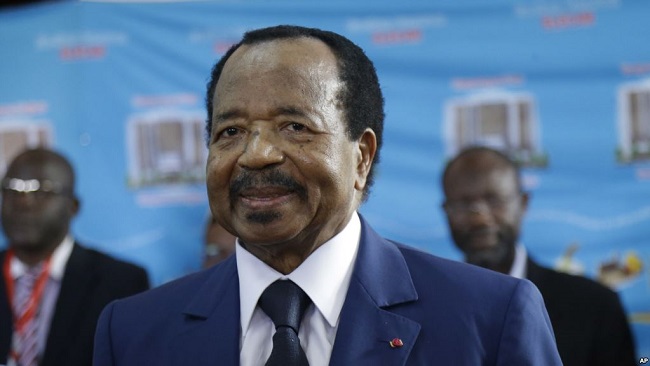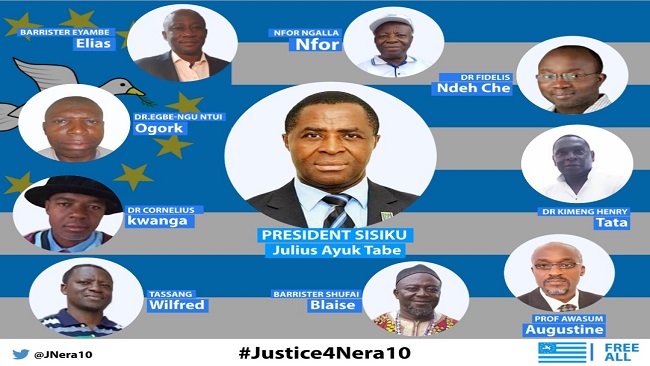11, January 2019
Cameroon Ranked Among The Worst Democratic Countries in Africa 0
A new Democracy Index published by the Economist, a renowned magazine, has placed Cameroon among the least democratic countries in Africa. In the Magazine report, Cameroon was equally ranked among the world’s top twenty most authoritarian states.
The Democracy Index based on five categories: electoral process and pluralism; civil liberties; the functioning of government; political participation; and political culture. Based on its scores on a range of indicators within these categories, each country is then itself classified as one of four types of regime: “full democracy”, “flawed democracy”, “hybrid regime” and “authoritarian regime”.
According to the report, Cameroon performed poorly in all four categories measured. It indicates that Biya’s country has one of the worst functioning governments in the region, and there is widespread abuse of civil liberties, while the electoral process is significantly flawed.
“In Cameroon…the president secured a seventh term in elections held in October. The poll was characterized by low voter turnout amid poor security and severe irregularities that have left Cameroonians disillusioned with the fairness of the process” part of the report notes.
This is not the first time Cameroon is being showed a red card in democratic practice as similar findings were published by the Mo Ibrahim governance Index report in 2018. The report noted the spike in authoritarian governance in Cameroon, widespread corruption, abuse of civil and political rights, and a dysfunctional state.
Source: Fomlsc.com























11, January 2019
Congo-Kinshasa’s Catholic Church says its election tally shows different winner 0
DR Congo’s powerful Catholic Church says election results tallied by its observers do not match official results announced on Thursday by the country’s election commission, which named Felix Tshisekedi as the surprise winner.
In a pre-dawn announcement, the election commission named Tshisekedi, son of the country’s late veteran opposition leader, as provisional winner of the bitterly-contested December 30 vote – a surprise result his main opponent promptly denounced as an “electoral coup”.
Just hours later, the Church said election results tallied by its 40,000 observers scattered across the country showed a different winner, without specifying who.
“We see that the result of the presidential election as published by CENI (the electoral commission) does not correspond with the data collected by our observer mission from polling stations and counting centres,” said Father Donatien Nshole, spokesman for the National Episcopal Conference of Congo (CENCO), which represents the country’s Catholic bishops.
At stake is political stewardship of the notoriously unstable central African nation which has never known a peaceful transition of power since independence from Belgium in 1960. Runner-up Martin Fayulu, the pre-election favourite, said the results announced on Thursday do “not reflect the truth of the ballots”, urging the Congolese to “rise as one man to protect victory”.
In an unusually blunt comment on a foreign election, French Foreign Minister Jean-Yves Le Drian also waded into the controversy, describing the results as “not consistent” with observers’ reports. He added: “The Catholic Church of Congo did its tally and announced completely different results.”
Last week CENCO called on the election commission to publish results “in keeping with truth and justice”, adding that data in its possession pointed to a clear winner. The United States on Thursday demanded “clarification” over the result, stopping short of recognising Tshisekedi as the winner.
“The National Independent Electoral Commission has announced provisional results, but we await clarification of questions which have been raised regarding the electoral count… We urge all stakeholders to remain calm as the process continues,” State Department deputy spokesman Robert Palladino said in a statement.
The last two elections in 2006 and 2011, both of which were won by incumbent Joseph Kabila, were marred by bloodshed, and many fear a repeat of the violence if there is any sense the result has been fixed.
The Catholic Church has long been pressing for the departure of Kabila, who has ruled the country with an iron fist since 2001 and who has stayed in power as caretaker leader even though his second and final elected term ended in December 2016.
(FRANCE 24 with REUTERS, AFP)